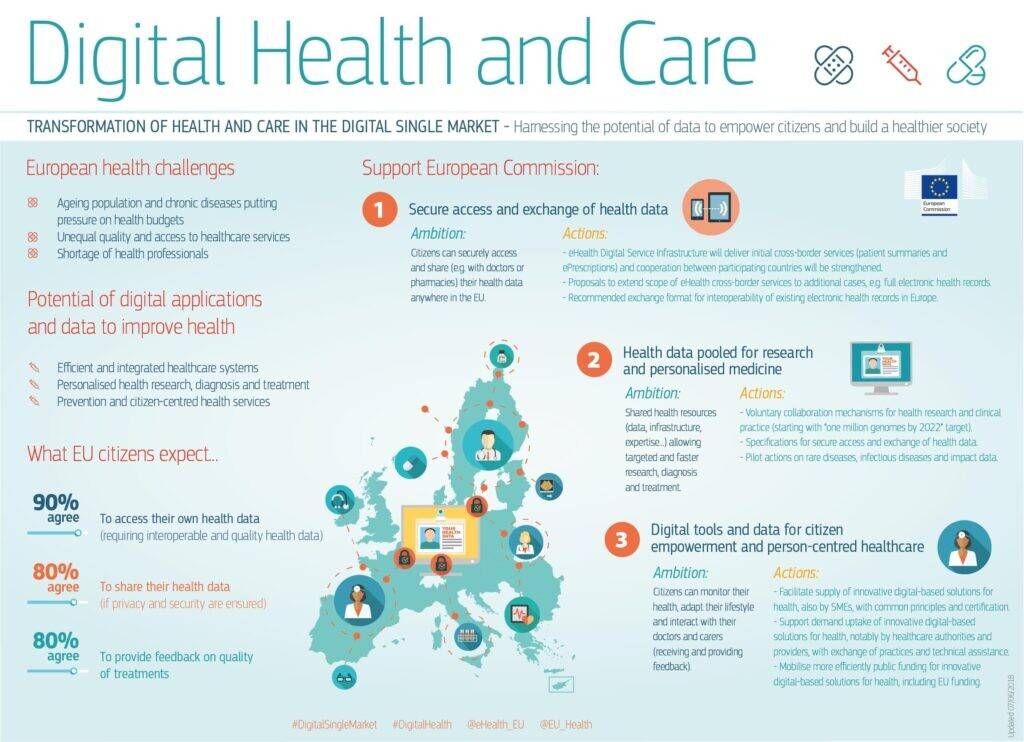The EESC clearly agrees with the vision outlined in the Communication, namely to promote health, prevent and fight diseases, help respond to unmet patient needs and make it easier for citizens to have equal access to high-quality care through appropriate use of digital innovations and social economy.
Furthermore, the EESC believes that it is essential to increase the sustainability of European health and care systems, helping to maximise the potential of the digital single market through greater use of digital products and services in the areas of health and care.

Promoting Health and Preventing Diseases with Digital Innovation
In its opinion, the EESC covers areas such as the impact of digital transformation of health and care on people, as well as on social and health systems, the digital market and on service providers.Development of Electronic Health Record exchange format
Concerning the first priority of the Communication, which promotes secure access to citizens own health data across the EU, the EESC endorses the Commission's efforts to support the development and adoption of the European electronic health record exchange format. The EESC underlines further that “Citizens should have the right to access their health data. They decide if and when to share their data.”European Data Infrastructure
The EESC gives its full support to the public in secure access to reliable health data across borders to advance research and disease prevention. Thus, it specifies the importance of allowing researchers and other professionals to pool resources, such as data, expertise, computing processing and storage capacities, across the EU.
Person-centred care and Citizen’s empowerment
Digital transformation gives citizens the opportunity to widely access innovative and more efficient personalised healthcare knowledge. Accordingly, the technical development of health places interpersonal relationships and social ties back at the centre of medical practice and care. Digital tools empower people to look after their health, stimulate prevention and enable feedback and interaction between users and healthcare providers. The EESC further argues that Health digitisation will contribute to not only reducing time spent in hospital, with a direct positive impact on healthcare in hospitals, but also assisting the recovery of patients themselves. The EESC also endorses the EU's support for small and medium-sized enterprises that are developing digital solutions for person-centred care and patient feedback.The future of European health
The EESC believes that equal access to healthcare, one of the main objectives of health policies, can benefit from digital support. It is therefore essential to increase the sustainability of European health and care systems, helping to maximise the potential of the digital single market through greater use of digital products and services in the areas of health and care. Furthermore, the EESC suggests promoting research and innovation on the integration of digital technologies in order to renew healthcare processes, e.g. artificial intelligence, Internet of Things and interoperability. Background The Communication on enabling the digital transformation of health and care in the Digital Single Market; empowering citizens and building a healthier society was adopted on 25 April 2018. It identifies three main priorities:- Citizens' secure access to their health data, also across borders
- Personalised medicine through shared European data infrastructure
- Citizen empowerment with digital tools for user feedback and person-centred care






